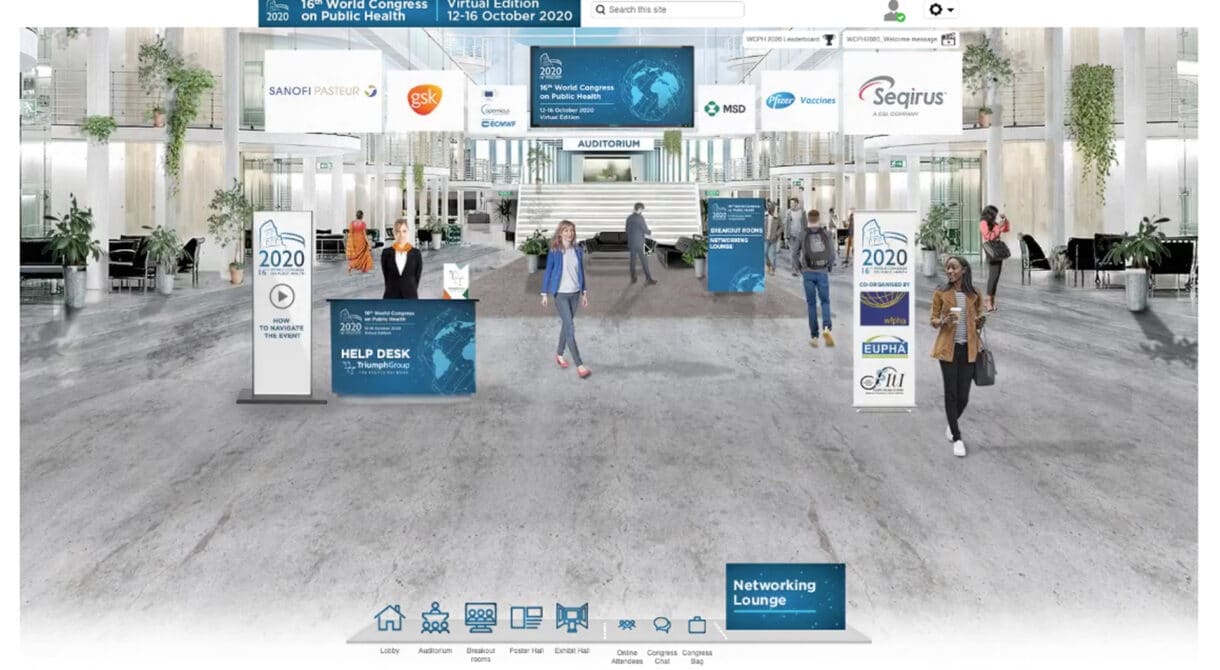“Only together we can overcome this terrible time,” explains Prof. Walter Ricciardi, congress co-chair and president of the World Federation of Public Health Associations (WFPHA). “It was important to have a place, even if virtual, to share and compare information, data, knowledge and exchange opinions and policies on key issues. The high quality of the debate was supported by the provenance of participants from all over the world creating a synergy and drive for tomorrow by learning from the global COVID-19 pandemic to build a just, healthier, and peaceful world.”
Revolving around the theme “Public Health for the Future of Humanity: Analysis, Advocacy and Action,” the scientific programme included 12 tracks, such as digital health, mental health, vulnerable groups, the Sustainable Development Goals and vaccination, as well as a COVID-19 dedicated track that highlighted some of the latest developments on coronavirus polices, control measures, and the impact on health systems and community services. Over 3,500 delegates from 122 countries attended the virtual congress, which featured eight plenary sessions with more than 40 high-profile experts and policymakers from international institutions like the European Commission and WHO Regional Office for Europe; 30 leadership dialogues; and 150 workshops.
The decision to take the congress virtual was made last spring, when the evolution of the pandemic was still uncertain and it was not advisable to host an in-person congress, explains Ricciardi. “The Congress Management Committee was firmly convinced that this year, more than ever, it was important that the public health community meets and the only way was to do it virtually.”
Co-chair Dr. Iveta Nagyova, President of the European Public Health Association (EUPHA), adds that a second wave of the virus may result in new restrictions and deter delegates or they may be unable to meet for an in-person event—but postponement to 2021 wasn’t an option. Several workshops were focused on the pandemic and concerns like governance, human rights, and mental health, which is why “delegates were convinced that it was the right time to come together and share knowledge on this topic,” explains Dr. Nagyova. “Delegates learned from each other’s research and policies by sharing knowledge, not only on COVOD-19 but on many other topics.”
Exciting experience
Organizing PCO Triumph Group had to make the switch from three years of planned actions to executing a virtual format, which senior project manager Magali Lanfrey called “an exciting and new experience…we had to quickly understand the options available, and integrate and implement them even faster.”
Despite initial challenges to create an interesting and updated programme (which incorporated the new COVID theme); coordinate between time zones of attendees and speakers; and navigate technology to find a tool catering to live sessions and networking opportunities, feedback from delegates has been positive so far, says Prof. Ricciardi. “The world needs an alliance between scientists and politics and the congress played an important role in achieving this goal,” he explains. “Global cooperation and coordination during a pandemic outbreak can be considered both an epidemiological imperative and a moral duty, and the way we need to live and work together in the future.”
Since the congress was initially designed and built for 4,000 people meeting in person, there were some limits in the platform for such a complex congress, says co-chair Prof. Carlo Signorelli. “Surely we have to get used to a different approach in the management of the online debates and sessions, but the sessions were well attended,” he says. “With an international and geographically representative audience, the only possibility to bring everyone together [given the current conditions of the pandemic] is in a virtual sense—and the debate was of the highest quality. The congress highlighted the strategic nature of public health, which needs to find ways to dialogue with political parties and other stakeholders in order to make the best choices for a safer and healthier way.”
To get to know people behind the screens of the 16th World Congress on Public Health, watch the video below:
